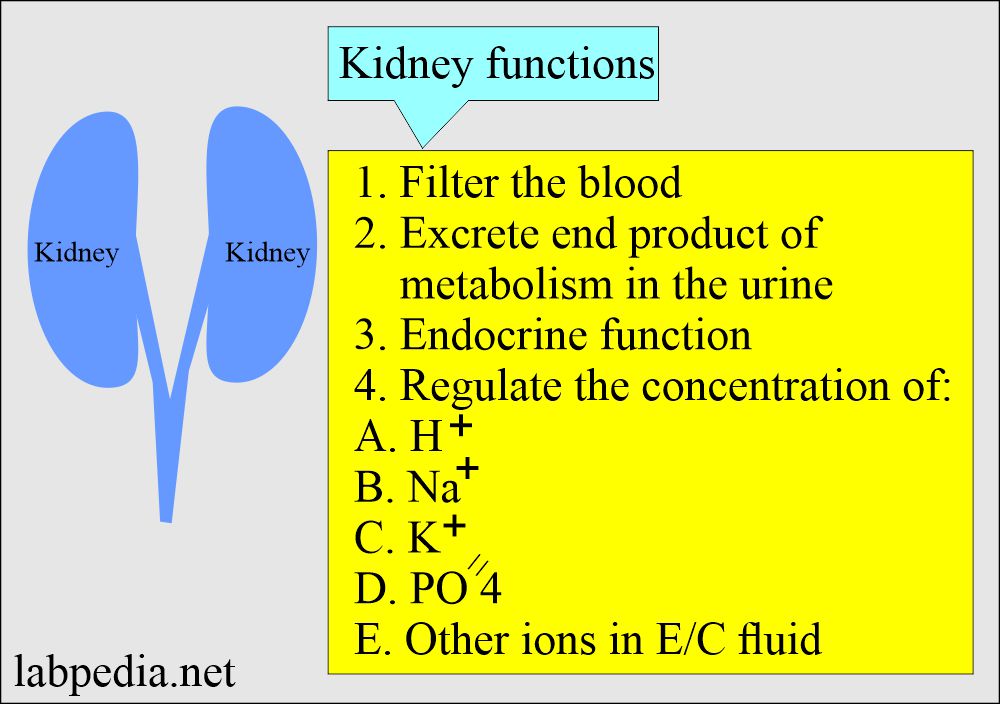Renal Function (RF)

Renal Function (RF): Understanding Its Importance and Implications
Definition:
Renal function (RF) refers to the ability of the kidneys to filter blood, remove waste products, regulate fluid and electrolyte balance, and maintain acid-base homeostasis. Proper renal function is essential for overall health, as the kidneys play a critical role in detoxifying the body and regulating various physiological processes.
Key Aspects of Renal Function
Filtration:
- The kidneys filter blood through structures called glomeruli, where waste products and excess substances are removed while retaining essential proteins and cells.
Reabsorption:
- After filtration, the kidneys reabsorb necessary substances such as glucose, amino acids, and electrolytes back into the bloodstream, ensuring that vital nutrients are not lost.
Secretion:
- The kidneys secrete additional waste products and excess ions into the urine, further aiding in the regulation of body chemistry.
Regulation of Blood Pressure:
- The kidneys help regulate blood pressure through the renin-angiotensin-aldosterone system (RAAS), which controls blood volume and systemic vascular resistance.
Acid-Base Balance:
- The kidneys maintain acid-base balance by excreting hydrogen ions and reabsorbing bicarbonate from urine.
Assessment of Renal Function
Renal function is typically assessed through several key tests:
- A common blood test that measures the level of creatinine in the blood; elevated levels may indicate impaired kidney function.
Glomerular Filtration Rate (GFR):
- An estimate of how well the kidneys filter blood, often calculated using serum creatinine levels along with factors such as age, sex, and race.
- A test that examines urine for abnormalities such as proteinuria (excess protein), hematuria (blood), or signs of infection.
- Measures total urine output over a 24-hour period to assess kidney function and detect abnormalities in protein excretion.
Common Conditions Affecting Renal Function
- A progressive loss of kidney function over time, often resulting from diabetes or hypertension, leading to complications such as proteinuria and electrolyte imbalances.
- A sudden decline in renal function due to factors like dehydration, nephrotoxic medications, or severe infections.
- Kidney damage resulting from diabetes, characterized by proteinuria and declining renal function.
Hypertensive Nephropathy:
- Kidney damage caused by chronic high blood pressure, leading to reduced filtration capacity and potential kidney failure.
- Inflammation of the glomeruli that can impair kidney function and lead to proteinuria or hematuria.
Conclusion
Renal function is a vital indicator of overall health, influencing many bodily systems. Regular monitoring and assessment are crucial for early detection of kidney disease and effective management of conditions that can impair renal function. Understanding renal function helps guide treatment decisions and improve patient outcomes.
Consult with Our Team of Experts Now!
At DrStemCellsThailand‘s Anti-Aging and Regenerative Medicine Center of Thailand, we specialize in comprehensive care for patients with kidney-related issues such as Chronic Kidney Diseases (CKD), Diabetic Nephropathy (DN), Familial Focal Segmental Glomerulosclerosis (fFSGS), Polycystic Kidney Disease (PKD), Acute Kidney Injury (AKI) ,Glomerulonephritis (GN), Alport Syndrome (AS), Lupus Nephritis (LN), Nephrotic Syndrome (NS), Kidney Cysts, Renal Ischemia-Reperfusion (IR) Injury, Acute and Chronic Kidney Failure, End-Stage Renal Disease (ESRD), Renal Fibrosis. Our team focuses on innovative therapies aimed at improving renal function and overall health. If you or a loved one is facing renal challenges, consult with our experts today to explore personalized treatment options that could enhance your quality of life!
Consult with Our Team of Experts Now!
References
- Levey AS et al. “Chronic Kidney Disease.” The Lancet. 2011; 377(9769): 2089-2100. DOI: 10.1016/S0140-6736(11)60178-5.
- KDIGO Clinical Practice Guidelines for Diabetes Management in Chronic Kidney Disease. Kidney International Supplements. 2014; 3(1): 1-150. DOI: 10.1016/j.kisu.2013.10.002.
- Mottl AK et al. “Proteinuria: A Marker for Kidney Disease.” American Family Physician. 2015; 92(11): 935-940. Available at: AAFP.















